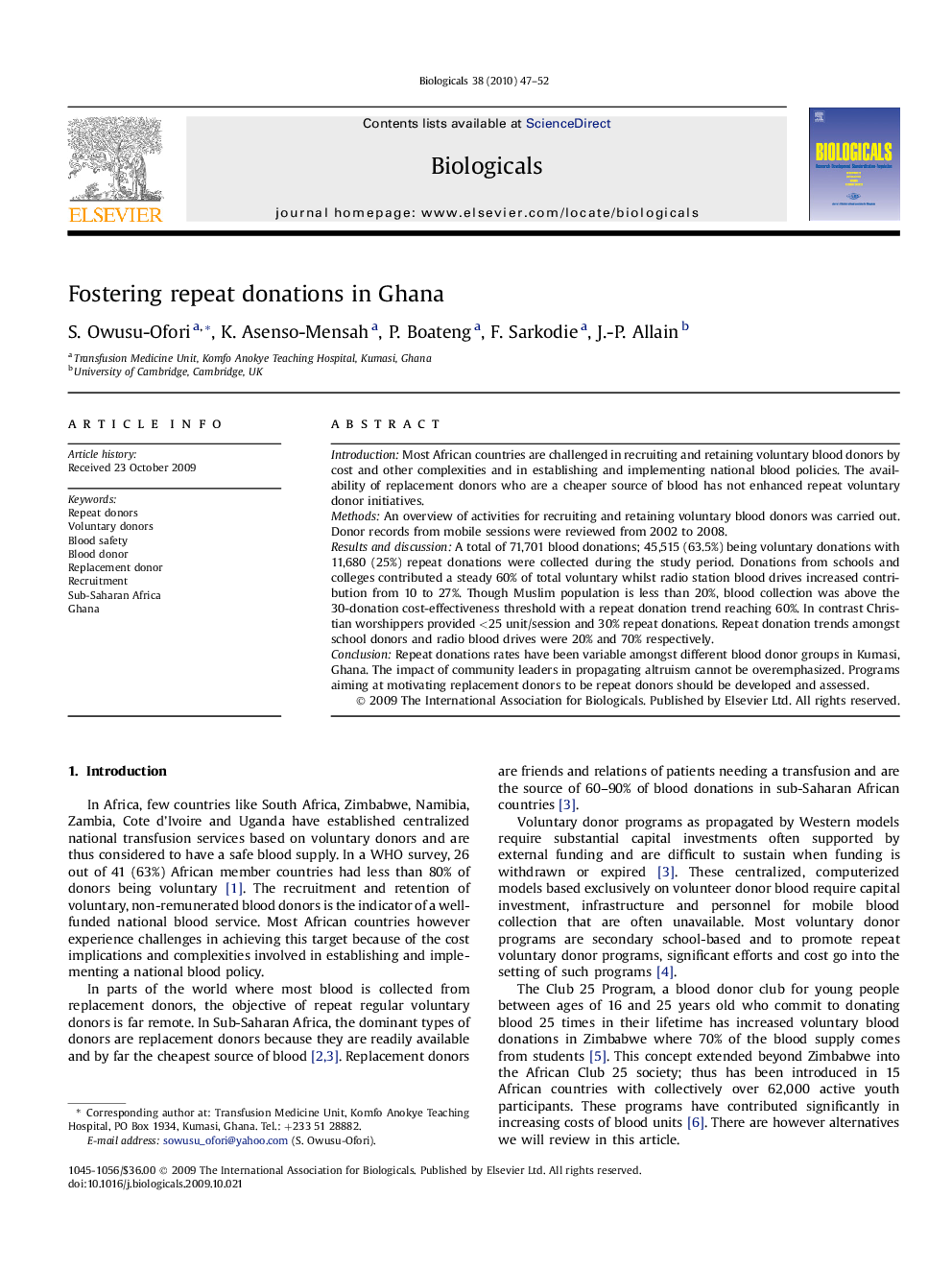| Article ID | Journal | Published Year | Pages | File Type |
|---|---|---|---|---|
| 2034265 | Biologicals | 2010 | 6 Pages |
IntroductionMost African countries are challenged in recruiting and retaining voluntary blood donors by cost and other complexities and in establishing and implementing national blood policies. The availability of replacement donors who are a cheaper source of blood has not enhanced repeat voluntary donor initiatives.MethodsAn overview of activities for recruiting and retaining voluntary blood donors was carried out. Donor records from mobile sessions were reviewed from 2002 to 2008.Results and discussionA total of 71,701 blood donations; 45,515 (63.5%) being voluntary donations with 11,680 (25%) repeat donations were collected during the study period. Donations from schools and colleges contributed a steady 60% of total voluntary whilst radio station blood drives increased contribution from 10 to 27%. Though Muslim population is less than 20%, blood collection was above the 30-donation cost-effectiveness threshold with a repeat donation trend reaching 60%. In contrast Christian worshippers provided <25 unit/session and 30% repeat donations. Repeat donation trends amongst school donors and radio blood drives were 20% and 70% respectively.ConclusionRepeat donations rates have been variable amongst different blood donor groups in Kumasi, Ghana. The impact of community leaders in propagating altruism cannot be overemphasized. Programs aiming at motivating replacement donors to be repeat donors should be developed and assessed.
